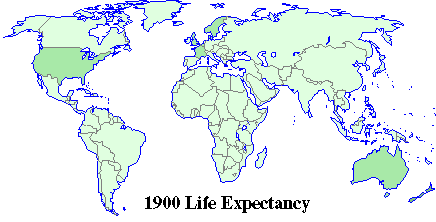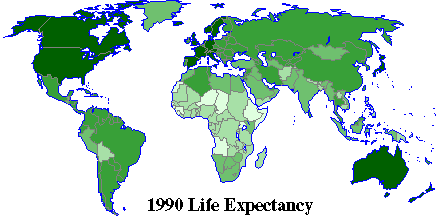 07/07/2008
07/07/2008I thought I would do some blogs about energy. This has become a much discussed and highly contentious political issue of late and as far as I am concerned it is about time. People need to be aware of our energy situation as well as the problems and solutions regarding it. I will begin with a few of my own observations and opinions then post some facts and figures FYI.
First off I sincerely believe we need to begin a transition away from fossil fuels, for a variety of reasons. Foremost among these is that they are a finite commodity, eventually we will run out, so we need to have new energy sources in place. Personally I think this will happen naturally, market forces and the law of supply and demand will ultimately dictate that other forms of energy will be created and put on line. However there are other reasons to speed up the process.
Pollution is one of the primary reasons to cycle out of fossil fuels. Although I do not believe in the alarmist view of anthropogenic global warming, oops climate change,and in no way believe that CO2 is a pollutant, fossil fuels are not the cleanest of energy sources. Actually my concern is not so much for fossil fuel pollution in the United States and the rest of the developed world, but for the developing and under developed countries of the world. The reason is that developed countries, such as the United States have done a pretty good job at cleaning up their air pollution. The Clean Air Trust web site puts it like this
How well has the Clean Air Act worked?
By any objective measurement, the act has been a tremendous success. The air is cleaner and public health has improved. Emissions of toxic lead have dropped 98 percent. Emissions of sulfur dioxide have dropped by 35 percent percent even though the gross domestic product has more than doubled. Emissions of carbon monoxide have dropped by 32 percent even though driving has increased 127 percent. Even so, many areas of the country still violate the basic health standards, and the health of tens of millions of Americans remains at risk.
Some will say that we have outsourced our pollution to other countries, this may be partially true but not as much as some would have you believe as I documented a bit in a previous blog . The fact is that the air I breathe in 2008 United States is cleaner than the air I breathed when I graduated from high school 35 years ago in 1973. What the United States and other developed nations need to outsource to developing countries is our clean air technology, not to mention forms of government and economies capable of responding to such challenges.
There are many reasons why we should continue the process of getting off fossil fuels as our primary energy source, even if it is not the big Bogey Man of AGW that it is made out to be. Having said that, the idea that we can somehow suddenly wean ourselves of fossil fuel use is both naive and destructive both to the United States and developing countries. Let’s look at some facts.
Despite the statement about American’s at risk due to the health hazards associated with air pollution alluded to in the article by The Clean Air Trust above, one fact is inescapable, access to energy means both economic and physical health to citizens. The life expectancy of an American in 1900 was 47, today it is 79. In one century a country has increased it's life expectancy an almost unbelievable 32 years . To put that in perspective and in comparison the life expectancy in some under developed countries Angola 38 years, Bangladesh 63, Chad 43, Haiti 57, Somalia 49



As you can see economic development leads to healthier and longer life. With few exceptions economic development is the result of increased energy use. In the twentieth century fossil fuels drove economies, which led to not only longer lives but a better standard of living for citizens in the developed countries.
How dependent are we in the United States on Fossil Fuels?
As it relates to BTU’s which are a standard measurement of energy regardless of the energy source or use, 86% of all energy used in the United States comes from fossil fuels. 8% of all energy is form nuclear power plants used for electricity, the remaining 6% is from renewable energy resources i.e. ethanol, wind, solar, hydroelectric dams etc.
Of course the goal would be to flip those figures around, to bring the fossil fuel use down and alternatives up, nobody doubts or argues that is not the long term answer. But how do we get from here to there and as important what kind of time frame are we looking at? Lets look at what the EIA , (Energy Information Agency) projects.
U.S. Energy Consumption by Fuel (1980-2030)
(quadrillion Btu)

If you read the report that goes with this graph, be my guest, you will find that the projection relate to a pretty much business as usual scenario. It assumes basically existing laws and policies in force as well as no significant technological breakthroughs. Personally I believe that there will be changes in policies and laws and I also believe that there will be technological breakthroughs which will reduce are dependence on fossil fuels. Having said that though, the graph shows what we are up against, remember that 86% of US energy currently is produced by fossil fuels, in the projection above it will only be reduced to 80% by 2130. Which is more of a reduction than it may seem, since energy use is projected to increase by .7% a year from 2006 until 2030 so in order to reduce fossil fuel use we must reduce it against an ever increasing demand. In other words use of energy is going to increase about 17% over the next 25 years so in order to keep up with demand we must increase energy supply from somewhere proportionally.
When people say that we can not drill our way out of the problem, they are correct, we can not. But the fact is that without drilling the problem becomes much larger. This is not a matter of reducing current gas prices by a few cents, ths is about having enough energy to ensure any kind of economic growth for our children and grandchildren. Drilling is not the solution to either our short term or our long term energy situation, but it is necessary for our mid-term, next 25 year economic survival and economic well being directly relates to human health.
In future posts I am going to post some facts about the current state of energy of all types, fossil fuels, nuclear , renewable and where we stand but I'll leave you a couple of graphs to ponder. Remember the goal is to get that 86-14% ratio of fossil fuels to alternative fuels turned around in the shortest possible time frame with as little economic damage as possible.

source

source
Link
No comments:
Post a Comment